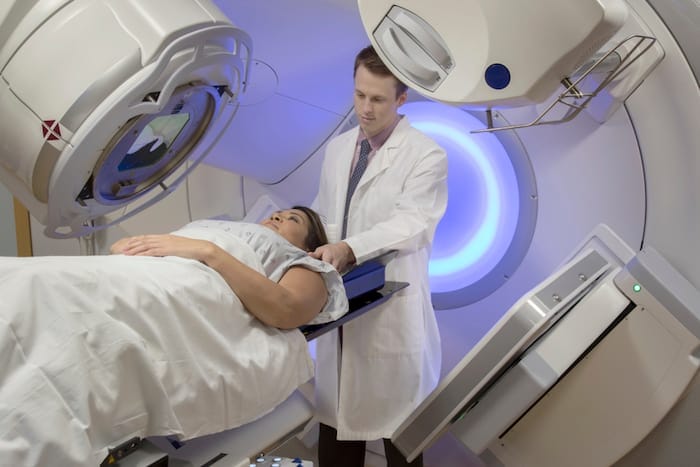
Medical oncologists specialize in providing cancer patients with diagnoses and treatment solutions. The expert develops a treatment plan based on pathology reports to check particular details, like the type and growth stage of cancer.
People who might be beginners in radiation therapy provided by oncologists might find preparation for the treatment confusing. Here are five ways to help you prepare for radiation therapy.
1. Start Eating Healthy
Radiation treatment, like chemotherapy, might be an invasive treatment to combat the severe adverse effects of cancer and other illnesses. The procedure may destroy both healthy and cancer cells, which might leave the body in a highly vulnerable state. Thus, it’s advisable to be as healthy as possible weeks before the operation.
Start filling your meals with healthy options. Boost nutrition by eating balanced meals filled with components that include carbohydrates, protein, and essential vitamins. Continue healthy eating even when the radiation treatment begins.
You can cook and freeze meals in advance. Otherwise, create a strict schedule with detailed information telling you the food you should and shouldn’t eat. Stock up on foods like:
- Fruits and vegetables
- Fat-free or Low-fat milk
- Whole grains
- Lean proteins
Don’t hesitate to consult an expert if you’re having difficulty preparing for the upcoming radiation operation. You can find medical oncologists here to help you in this regard.
Educate Yourself
Learn as much as you can about your current health condition. Don’t be afraid to browse the Internet or ask professionals about the best and worst-case scenarios when taking the procedure.
For instance, read resources telling you about potential cancer treatments that may complement your path to a full recovery. Other options might be available to supplement the healing process brought by the radiation operation.
Aside from talking to an oncologist, you may start with reliable online resources to learn more about your health condition and its possible treatment options. For example, the American Cancer Society has a guide that may help you understand cancer surgery better than before. Here, you can learn more about the operations used for treating cancer, along with the risks involved in these treatment options.

Plan for the Side Effects
As you’re educating yourself with your health concern and the radiation treatment, you should also learn about the potential side effects associated with the operation.
Take note that cancer treatment plans may depend on the type and location of the cell overgrowth. Your oncologist might suggest chemotherapy to help reduce and potentially eliminate the cancer cells in your body. However, healthy cells may become damaged by the operation. Thus, you might become susceptible to other health concerns because of a weak immune system.
These adverse effects may include:
- Fatigue
- Nausea
- Hair loss
- Loss of appetite
- Infection
But, you may not know which of these side effects you’ll experience until you begin the operation. However, you can prepare for these effects days or weeks before they surface.
For instance, your oncologist might ask you to prepare a list of medicines to help counteract the side effects. It might be best to have these medications at an arm’s length when the adverse effects happen.
Arrange Transport To and From the Medical Facility
You may feel fatigued or weakness after the radiation procedure. Consequently, that weakness might already exist because of your current health condition. Nonetheless, these situations might make it challenging for you to travel to and from the medical facility where the operation takes place.
Don’t commute or drive to the medical establishment by yourself. Arrange for a friend or relative to drive you to the facility. Otherwise, you can ask for a taxi to help you travel to the institution.
Friendly radiation center staff members may assist in providing you with a means of transportation to get home after the treatment. Don’t hesitate to ask the front desk or your oncologist for travel assistance.
Voice Your Concerns
Medical oncologists can answer your questions about the treatment. Emotions might interfere with focus as you mumble in trying to inquire about the operation.
If you’re feeling anxious, make a list of questions to ask when you’re meeting the treatment team. Also, you can visit online groups with members who may have similar experiences with you in this matter.
Conclusion
It’s crucial to prepare for radiation to help rid your body of harmful cells. Let this guide assist you in organizing your thoughts and tasks for the upcoming treatment. Failure to follow an excellent preparation plan might result in unwanted side effects.
Throughout the year, our writers feature fresh, in-depth, and relevant information for our audience of 40,000+ healthcare leaders and professionals. As a healthcare business publication, we cover and cherish our relationship with the entire health care industry including administrators, nurses, physicians, physical therapists, pharmacists, and more. We cover a broad spectrum from hospitals to medical offices to outpatient services to eye surgery centers to university settings. We focus on rehabilitation, nursing homes, home care, hospice as well as men’s health, women’s heath, and pediatrics.







